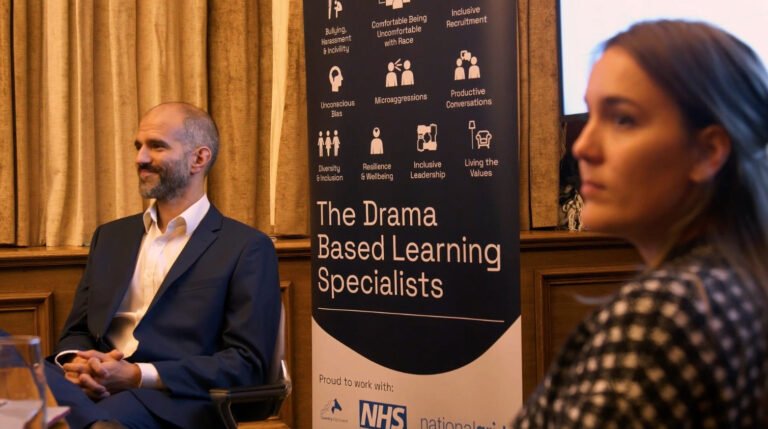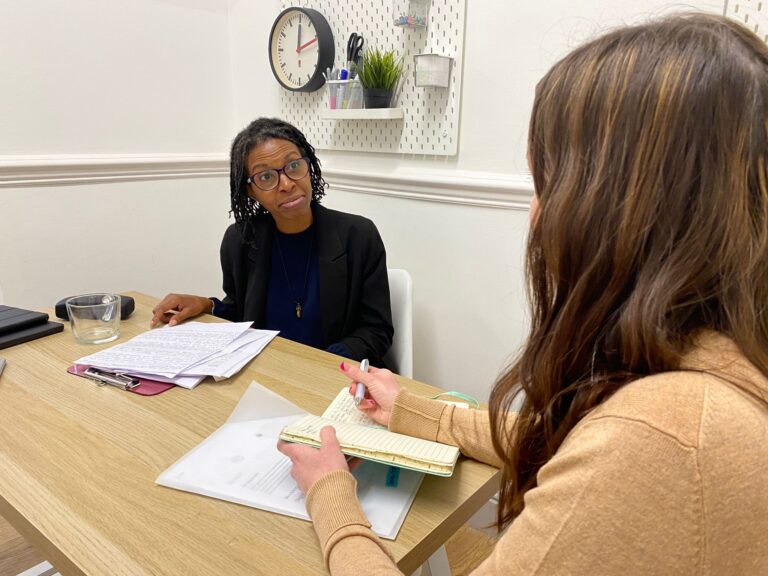
As women approach midlife, they face a new wave of ageism and sexism in the workplace.
A study published by Harvard Business Review last year found that women of all ages face age bias. However, when they reach their forties, the report shows that women are viewed and treated differently. One participant spoke about how some search committees in health and care have decided not to hire women in their late forties because they have “too much family responsibility and impending menopause.” Toxic workplace culture and stigma have been the main driving forces behind ageism/sexism within organisations.
Age discrimination is illegal in the workplace.
Examples of age discrimination in the workplace:
- Refusing to hire women over a certain age
- Asking for a person’s age at a job interview when it is not relevant to the work
- Enacting policies that unfairly privilege younger people
- Viewing older women as out of touch, less productive, or stuck in their ways
- Mocking of a person’s age
- Lack of support and wellbeing services for women going through the menopause
- Being made redundant due to age
Some statistics:
- Age UK highlighted that over half of people aged over 50 in England have experienced age discrimination in the past year.
- In 2023, a report by the charity, ‘Chwarae Teg’ carried out a study involving over 400 women over fifty living in Wales. They found that many women over 50 felt “invisible and overlooked” in their jobs.
- A survey conducted by Women of Influence this year found that “more than three in four women across the world have experienced ageism throughout their careers.” 80.7% of participants had witnessed women in the workplace being treated differently because of their age.
- The AARP (The American Association of Retired Persons) expressed that 72% of women in America aged between 45-74 believe ageism is a problem at work. This is higher than the number of men in the same age group who notice ageism, which is 57%.
Midlife research for women
Eleanor Mills (founder of Noon – a platform designed to help women in midlife in their next chapter) spoke at the Productive Women’s Conference in 2023. Eleanor discussed the current generation of midlife women, who entered the workplace in the eighties and have worked all the way through after leaving university. Most have returned to work after having children. These women are known as the ‘queenagers’. Eleanor argues that the queenagers have been the driving force for behavioural change in the workplace for many years, for example, advocating for the closing of the gender pay gap and fighting for women to be in leadership roles. And now, as they get to midlife, they are made to feel invisible, undervalued and unappreciated in their jobs.
Unfortunately, midlife women’s participation, progression and success in the workplace is judged based on the paradigms of a patriarchal system. There is a lot of conscious and unconscious bias in the workplace: midlife women are viewed as out of date, unproductive and if returning to work, hard to upskill. However, “women are hitting their prime” at midlife and they don’t need to be “fixed.” (Eleanor Mills). Midlife women bring fresh outlooks, characteristics, and attributes to the table compared to their male counterparts but because they don’t fit into the outdated workplace systems, they are not met with respect or appointed to leadership roles. Instead, they are told how to act and adapt to be successful in their line of work. What we need to see is a change in the system and not for the responsibility for this change to lie on women’s shoulders. Organisations need to open to a new way of thinking and change their daily practices to give midlife women the flexibility and the opportunities to thrive.
Flexible working for women
During midlife, women are most likely experiencing a range of life transitions; divorce, bereavement, looking after elderly family members, menopausal symptoms and health issues. In Eleanor Mills’ Noon research, the big ask from midlife women was the need for flexibility and adaptability in their workplace. They would rather have work-life balance and purpose in their jobs than status. Eleanor’s arguments are backed by Lucy Standing, the CEO of Brave Starts, (a non-profit organisation that helps people aged 45-70+ with the next steps of their career) said, “In a 50 to 60-year-long working life, most of us are going to want or need to take career breaks. In the UK alone, there are 1.7m people (88% women) on caring-related career breaks. Enabling their return into employment is becoming an economic imperative.”
The key to creating a flexible working environment is through understanding and providing support to employees. Leaders need to develop a deeper understanding of the challenges midlife women are facing, in and outside of work. Take menopause for example, there has been a stigma around discussing menopause (especially in areas such as the workplace), which has often led to employees struggling in silence.
Menopause and workplace support
CIPD conducted a survey in 2023 that involved over 2,000 women between the ages of 40-60 in England (where.) The survey explored the “difference workplace support can make and the importance of creating a healthy workplace culture.” They looked at the types of changes that are most helpful for women to manage their symptoms at work, as well as exploring the impact of menopause symptoms on employee’s ability to stay in their jobs and progress. A big finding was that workplace support makes a significant difference. 84% of people who were unsupported by their employer said their menopause symptoms had a mostly negative effect on them at work, compared with 71% who were supported. Women who feel unsupported are more likely to feel an increase in pressure and stress.
UK menopause workplace guidance
A few days ago, EHRC (Equality and Human Rights Commission) changed the legislation under the Equality Act 2010 regarding menopause in the workplace. Employers are now under legal obligation to make “reasonable adjustments” for employees experiencing menopause and not discriminate against their employees. The ruling also expressed that long-term symptoms of menopause could be considered a disability. This has been a huge step forward for midlife women’s rights in the workplace.
“As Britain’s equality watchdog, we are concerned both by how many women report being forced out of a role due to their menopause-related symptoms and how many don’t feel safe enough to request workplace adjustments. An employer understanding their legal duties is the foundation of equality in the workplace” (Baroness Kishwer Falkner, Chairwoman of the Equality and Human Rights Commission). Many organisations will now be reviewing and adapting their policies and practices to encourage inclusivity in the workplace.
A brilliant example of a company who changed their policy is Nottinghamshire Police, who were the first organisation to introduce a menopause policy in the workplace which includes lighter-weight uniforms and flexible working patterns. Key areas to focus on within a policy are absence (giving the space for women to have time off or work from home if they are experiencing menopause symptoms or need to care for their families) and improving working conditions, such as, moving workstations closer to the toilets or windows which open and giving women the space to adjust their work routines.
Some companies have also appointed a ‘menopause champion’. This is someone who raises the profile of menopause within the organisation by telling employees what support the company can offer, arranging workshops for managers/colleagues and creating support networks. They help provide safe spaces for employees to connect, discuss issues they are experiencing and highlight areas that need improving within the organisation.
A government-funded review involving 104 academic studies highlighted that companies need to tackle bias and discrimination through compulsory training programs such as DEI, Dignity and Respect and Difficult Conversations. At Enact Solutions, we offer a range of training courses including:
- ‘DEI Leadership’ – which explores what a leader who champions DEI looks like, the ways in which leaders can recognise how exclusion happens in the workplace and how they can respond/challenge non-inclusive behaviours. We also offer a separate DEI program which is open to a range of employees.
- ‘Dignity and Respect’ – which looks at organisational expectations of behaviour, different perspectives on bullying and harassment and gives people the tools to create a healthier, more inclusive working environment.
- ‘Productive Conversations’ – this looks at how individuals can hold productive conversations in a variety of potentially challenging areas including wellbeing. It helps employees recognise the key elements of good listening and how to balance it with person-empathetic questioning. The program also looks at nurturing psychological safety in the workplace and providing one-to-one support.
Although the topic of women and age discrimination is also a wider societal issue, change can start from within your organisation. If companies take the time to listen to their female employees, invest in suitable training programs and work together to review and change company policy, they can make a valuable difference to their workplace culture. If you’d like to find out more about Enact Solutions, please take a look at our website and our socials.
Zara Huxley
Sources:
Women in workforce face age bias no matter how old they are, study finds | The Independent
Changing attitudes towards ageing | Discover | Age UK
Ageism: Older women face heavy workplace discrimination – charity – BBC News
POWERful Women Annual Conference 2023 Livestream Recording – YouTube
Meet the Queenagers: A Noon Research Project – Noon
Ready for your next career step (bravestarts.com)
2023-menopause-report-8456.pdf (cipd.org)
Almost 80 per cent of Women Face Ageism in the Workplace – Women of Influence
Ageism in the Workplace: Statistics to Know | Built In
10 Facts About Age Discrimination in the Workplace (aarp.org)
What is menopause and why might employers now be sued if they don’t take it seriously? | ITV News



